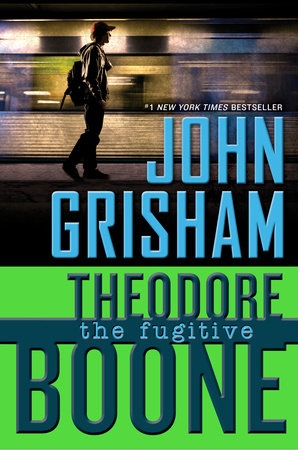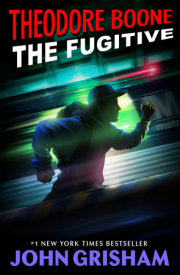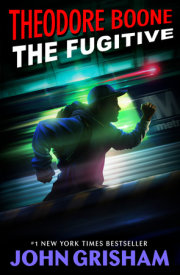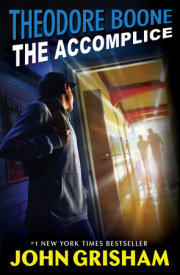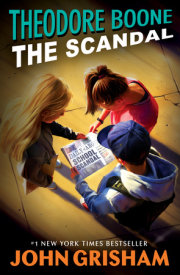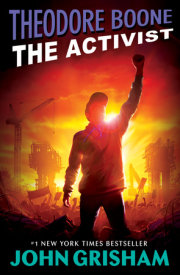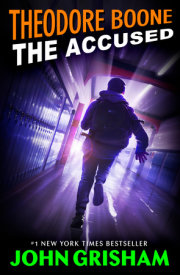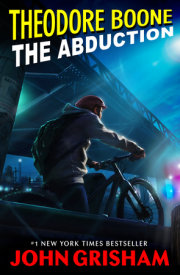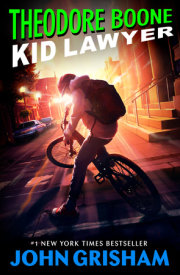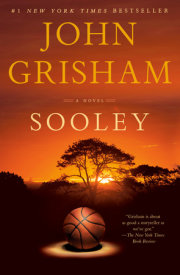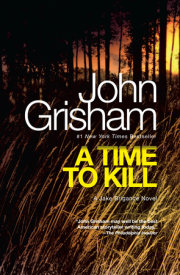Chapter 1
Though the streetlights of Strattenburg were still on, and there was no hint of sunlight in the east, the parking lot in front of the middle school was buzzing with energy as almost 175 eighth graders arrived in family cars and vans, all driven by sleepy parents eager to get rid of the kids for a few days. The kids had slept little. They had packed all night, tossed and turned in their beds, hopped out long before sunrise, showered, packed some more, awakened their parents, pushed for a quick breakfast, and in general acted as hyper as a bunch of five-year-olds waiting for Santa. At six a.m., as instructed, they all arrived at the school at the same time. They were greeted by the awesome sight of four long, sleek, matching tour buses in perfect single file with running lights glittering in the dark and diesel engines purring.
The Eighth-Grade Field Trip! Six hours by bus to Washington, DC, for three-and-a-half days of seeing the sights and four nights of mischief in a high-rise hotel. For this, the students had worked for months—selling doughnuts on Saturday mornings, washing a thousand cars, cleaning roadside ditches and recycling the aluminum cans, soliciting the same downtown merchants who contributed every year, selling fruitcakes door-to-door at Christmas, auctioning used sports equipment, holding bake-a-thons and bike-a-thons and book-a-thons, and pursuing with enthusiasm any number of mildly profitable ventures approved by the Field Trip Committee. All proceeds went into the same pot. The goal had been ten thousand dollars, certainly not enough to cover all expenses but enough to guarantee the trip. This year the class had raised almost twelve thousand dollars, which meant that each student was assessed $125.
There were a few students who could not afford this. However, the school had a long tradition of making sure no one was left behind. Every single eighth grader was headed to Washington, along with ten teachers and eight parents.
Theodore Boone was thrilled that his mother had not volunteered for the trip. They had discussed it over dinner. His father had quickly bowed out, claiming, as usual, that he simply had too much work. Theo’s mother, at first, seemed interested in tagging along, but soon realized she could not. Theo checked her trial calendar at the office and knew full well she would be in court while he was having a ball in Washington.
As they waited in traffic, Theo sat in the front seat and stroked the head of his dog, Judge, who was sitting partially on the console and partially in Theo’s lap. Judge usually sat wherever he wanted, and none of the Boones told him otherwise.
“Are you excited?” Mr. Boone asked. He had drop-off duty because Mrs. Boone had gone back to bed for another hour of sleep.
“Sure,” Theo said, trying to hide his excitement. “A long bus ride, though.”
“I’m sure you guys’ll be asleep before you get out of town. We’ve gone over the rules. Any questions?”
“We’ve been through this a dozen times,” Theo said, mildly frustrated. He liked his parents. They were a bit older than average, and he was an only child, and at times they seemed a little too protective. One of the few things that irritated Theo about them was their fondness of rules. All rules, regardless of who made them, must be followed perfectly.
Theo suspected this was because they were both lawyers.
“I know, I know,” his father said. “Just follow the rules, do what your teachers tell you, and don’t do anything stupid. Remember what happened two years ago?”
How could Theo, or any other eighth grader, ever forget what happened two years ago? Two bozos—Jimbo Nance and Duck DeFoe—dropped water balloons from a fifth-floor hotel room into the indoor lobby far below. No one was hurt, but some folks got really wet, and really mad. A snitch turned them in, and the boys’ parents had to drive six hours in the middle of the night to retrieve them. Then six hours back to Strattenburg. Jimbo said it was a very long drive. They were suspended from classes for a week, and the school was told to find another hotel for future field trips. This misadventure was now legendary around town, and it was used to caution and frighten Theo and every other eighth grader headed to Washington.
They finally parked. Theo said good-bye to Judge and told him to stay in the front seat. Mr. Boone opened a rear door and removed Theo’s luggage—one nylon overnight bag that was supposed to weigh under twenty pounds. Anything over twenty pounds would be left behind (one of the Big Rules!), and the guilty kid would be forced to make the trip without the benefit of clean clothes and a toothbrush. This would not have bothered Theo in the least. He had survived a week in the woods with the Boy Scouts with less equipment.
• • •
Mr. Mount was standing by a bus with some scales, weighing other luggage as it was loaded into storage. He was smiling and laughing, as excited as his students. Theo’s bag weighed nineteen pounds, eight ounces. His backpack barely made the limit at twelve pounds, and Theo was in business. Mr. Mount checked the overnight bag for an ID card and told Theo to get on the bus.
Theo shook his father’s hand, said good-bye, froze for a moment, terrified his father might try to hug him or something awful like that, then breathed a sigh of relief when Mr. Boone said, “Have fun. Call your mother.” Theo scampered aboard.
Close by, the girls were saying good-bye to their mothers with all manner of embracing, blubbering, and carrying on as if they were going off to war and would probably never come home. By the boys’ buses, though, the tough guys stiffened and tried to get away quickly from their parents with as little contact as possible.
The parking lot slowly cleared as the sun rose. At precisely seven a.m., the four buses rolled away from the school. It was Thursday. The big day had finally arrived, and the kids were noisy and rowdy. His seatmate was Chase Whipple, a close friend who was often referred to as “The Mad Scientist.” To prevent them from getting lost and wandering through the dangerous streets of DC, the teachers had implemented the Buddy System. For the next four days Theo would be stuck with Chase, and Chase with Theo, and each was supposed to know what the other was doing at all times. Theo knew he got the bad end of the deal because Chase often got lost on the campus of the Strattenburg Middle School. Keeping an eye on him would take some work. They would share a room with Woody Lambert and Aaron Nyquist.
As the buses eased through the quiet streets, the boys chattered excitedly. No one had yet thrown a punch or yanked off someone else’s cap. They had been threatened about misbehaving, and Mr. Mount was watching them closely. Then someone behind Theo passed gas, and loudly. This was instantly contagious, and before they were out of Strattenburg Theo wished he could have been sitting with April Finnemore on the other bus just ahead.
. All rights reserved. No part of this excerpt may be reproduced or reprinted without permission in writing from the publisher.

